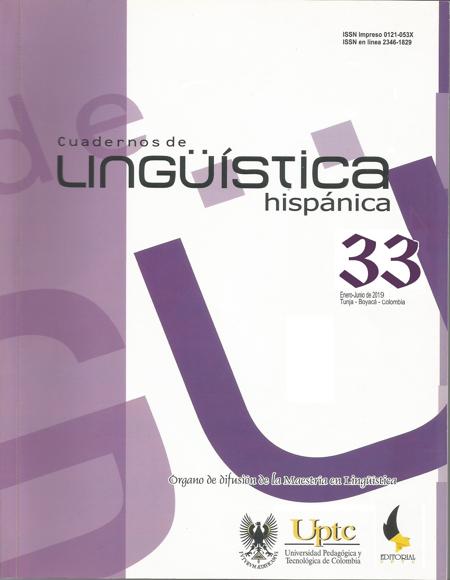Storytelling as a Didactic Proposal to Approach Culture Topics in a Fifth Graders' Classroom

Abstract
This research study was developed with ten fifth graders in the primary School Inem Carlos Arturo Torres, headquarters Las Américas, in Tunja, Colombia. The objectives of this study were to guide students to gain more knowledge about other cultures as well as their own one, to become aware of cultural differences and to develop more positive and accepting perceptions of different cultures. In this regard, some stories were narrated using big-books which were designed into the English language classroom. The instruments used in this action research to collect data were student’s artifacts, group discussions, and two surveys. Findings revealed that the stories impacted directly on students’ knowledge and understanding of other cultures as well as of the Colombian one. This strategy also helped them to build their vocabulary and to transform the way these kids were used to develop the English classes. With this activity they found their classes more interesting and dynamic.
Keywords
culture, culture awareness, stories, big-books
Author Biography
María Teresa Esteban Nuñez
Magíster en Docencia de Idiomas, docente asociada UPTC. Grupo de Investigación: Knowledge in Action, UPTC.
Ana Victoria Gómez Ríos
Magíster en Educación y Nuevas Tecnologías, UDIMA, España. Docente I. E. Sergio Camargo, Miraflores, Boyacá
References
References
Bueno, A. (1996). Sociolinguistic and Sociocultural Competence. In N. McLaren & D. Madrid (eds.). A Handbook for TEFL. Alcoy: Marfil.
Buttjes, D. (1990). Teaching Foreign Language and Culture: Social Impact and Political Significance. Language Learning Journal, 2, 53-57.
Congreso de la República de Colombia. (2004). Ley General de Educación. Bogotá: Imprenta Nacional.
Derenowsky, M. (2016). Project-Based Learning as an Effective Instrument in Developing Learners’ Intercultural Awareness. In K. Papaja & C. Can (eds.), Language in Focus: Exploring the Challenges and Opportunities in Linguistics and English Language Teaching (ELT). Newcastle Upon Tyne, UK: Cambridge Scholars Publishing.
Ellis, G. & Brewster, J. (2014): Tell it again! The New Storytelling Handbook for Primary Teachers. Retrieved from http://www.teachingenglish.org.uk/sites/teacheng/files/D467_Storytelling_handbook_FINAL_web.pdf
Kramsch, C. (1993). Context and Culture in Language Teaching. Oxford, UK: Oxford University Press.
Kramsh, C. (2013). Culture in Foreign Language Teaching. Iranian Journal of Language Teaching Research, 1(1), 57-78.
Liddicoat, A. (2002). Static and Dynamic Views of Culture and Intercultural Language Acquisition. Babel, 36(3), 4–11.
Marshall, J. (2004). Living Systemic Thinking: Exploring Quality in First-Person Action Research. Action Research. 2(3), 309-329. Retrieved from http://jmarshall.org.uk/Papers/2004%20Marshall%20LivingSystemicThinking.pdf.
Merriam, S. (1988). Case Study Research in Education: A Qualitative Approach. San Francisco: Jossey- Bass.
Ministerio de Educación Nacional –MEN-. (2006). Estándares básicos de competencias en lenguas extranjeras: inglés. Formar en lenguas extranjeras: ¡el reto! Lo que necesitamos saber y saber hacer. Bogotá: Imprenta Nacional.
Strauss, A. L. & Corbin, J. (1998). Basics of Qualitative Research: Grounded Theory Procedures and Techniques (2nd ed.). London: Sage.
Stremmel, A. (2002). The Value of Teacher Research: Nurturing Professional and Personal Growth through Inquiry. Voices of Practitioners, 2(3), 1-9. Retrieved from https://www.naeyc.org/files/naeyc/file/vop/Voices-Stremmel(1).pdf
Thanasoulas, D. (2001). The Importance of Teaching Culture in Foreign Language Classroom. Retrieved from http:// radicalpedagogy.icaap.org/content/issue3_3/7-thanasoulas.html
Tylor, E. B. (1871). Primitive Culture: Researches into the Development of Mythology, Philosophy, Religion, Art, and Custom. New York: Gordon Press.
